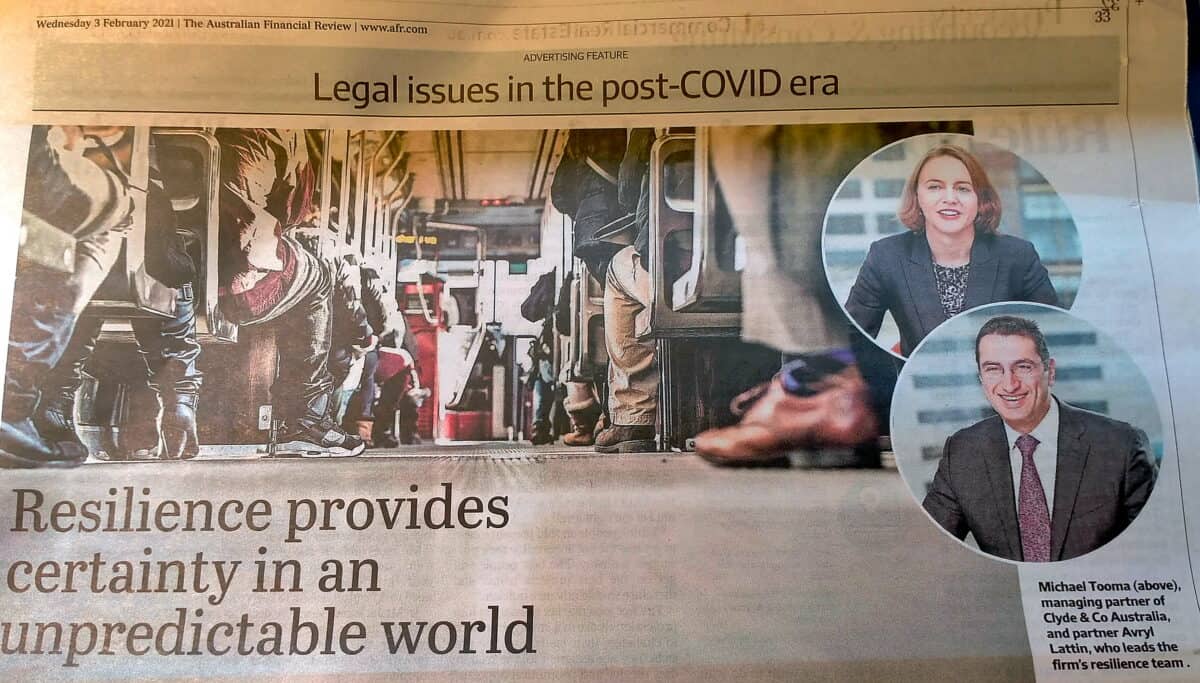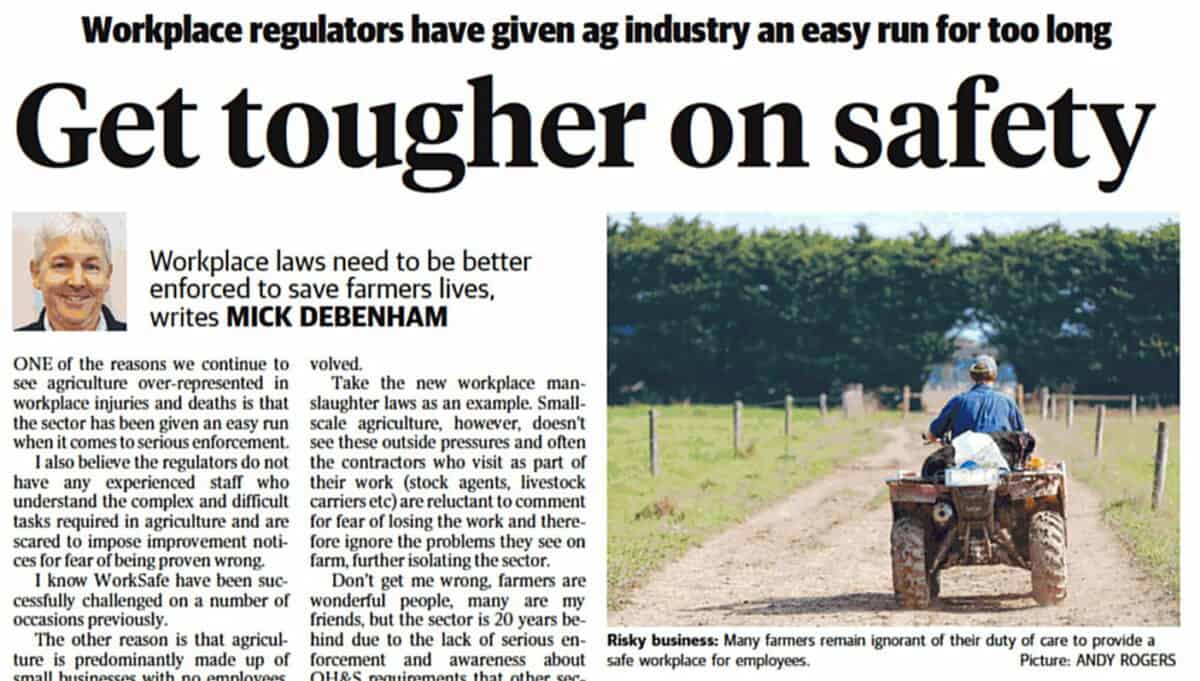Last week Australia’s Attorney-General, Christian Porter (Liberal Party), spoke of the occupational health and safety (OHS) of gig workers in the food delivery sector and illustrated a perspective that is less helpful than it could be.
Category: law
Is WorkSafe jumping the gun?
In mid-February 2021, WorkSafe Victoria issued a media release informing the community that it has charged a contractor following a worker’s death at a residential building site in Ballarat. Informing the community in such an early stage of a prosecution raises the issue of fairness and, according to one prominent occupational health and safety (OHS) lawyer, appears a little “unseemly”.
The revelation of legal action in any area of enforcement is tricky, with each case raising unique combinations of concern. Does the accused know of the prosecution? And before anyone else is told? Is the revelation in the public interest? Does it taint any future hearing or court appearance? Does it affect the chance of a successful prosecution or a successful defence? All of these are valid questions that need asking and answering in each case. Worksafe would surely have considered these matters before the February 2021 media release, but let’s look at the release in a different context.
The PM expects Australian workplaces to be “as safe as possible”
Prime Minister Scott Morrison has set the occupational health and safety (OHS) bar unachievably high for Australian businesses.
Morrison is embroiled in a scandal about an alleged rape in a ministerial office, his knowledge of and response to it, and his government’s duty of care to political employees. Below is his response to this question from a journalist:
JOURNALIST: “What is your message to young women who might want to get into politics and see this and are just horrified by it. What’s your reassurance to them about getting involved in the Liberal party or other parties? “
Workplace wellbeing, mental health and cake
Recently Australians Jason van Schie and Joelle Mitchell released a podcast series called Psych Health and Safety focussing on psychological health and health promotion at work. Recently Carlo Caponecchia spoke on the podcast about mental health at work and the soon-to-be-released International Standard 45003 for managing psychosocial risks at work, a “child” of ISO45001 the occupational health and safety (OHS) management standard.
Caponecchia was asked to outline the statistics for workplace mental health in Australia. He stated that the official figures are that 9% of workers compensation claims related to mental health at work and that claims for this type of injury have increased substantially since the year 2000. However, he also added a caveat to those figures, a caveat that should apply to all official OHS statistics:
Business continuity planning by another name
Occupational health and safety (OHS) gets a mention in a full-page advertorial in the Australian Financial Review (AFR) (February 3 2021, page 33) revolving around the legal and business services of Clyde & Co. The advertorial contains a good example of the contemporary business jargon such as “organisational resilience” – a concept that has come to the fore during the COVID-19 pandemic.
“Organisational resilience” has several definitions but here is one used by the British Standards Institution:
“….the ability of an organization to anticipate, prepare for, respond and adapt to incremental change and sudden disruptions in order to survive and prosper.”
This has very strong similarities to the much longer-established concepts of “business continuity” or sustainability within which OHS has dabbled for decades.
Ask not what WorkSafe can do for you, but what you can do to improve safety
One of the most difficult industries in which to achieve occupational health and safety (OHS) improvements is farming, especially in areas where farming continues to be done by small family units. The safety culture of farming is unique as the workplace is embedded in community and rural culture. Some people believe that OHS regulators have given the agricultural industry an easy run for too long, as stated by Mick Debenham in a recent opinion piece in The Weekly Times (paywalled), but farmers should perhaps ask themselves why people continue to die on their farms and what they can do to change this.
Biden reverses Trump’s position on workplace safety
It is fair to say that the term of office for President Trump was not supportive of occupational health and safety (OHS). Former President Trump did not seem to see the need for OHS regulations and his attitude to the COVID-19 pandemic meant that it would never be considered as an occupational disease. Reports over the last week in the United States media, and the issuing of an Executive Order, indicate that new President Biden values workplace health and safety.
The New York Times (paywalled) is reporting that
“President Biden directed the Occupational Safety and Health Administration [OSHA] on Thursday to release new guidance to employers on protecting workers from Covid-19.
In one of 10 executive orders that he signed Thursday, the president asked the agency to step up enforcement of existing rules to help stop the spread of the coronavirus in the workplace and to explore issuing a new rule requiring employers to take additional precautions.”






